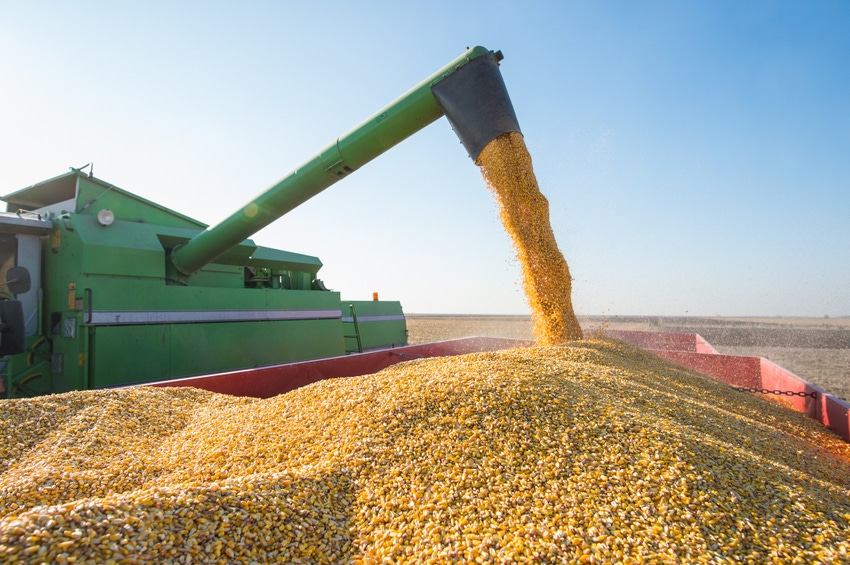
Crop producers in the Upper Midwest are indicating mixed crop production results in 2017, with some producers reporting good-to-excellent corn and soybean yields, while others are achieving average yields for the year. In addition, farm operators in some portions of the region who are enrolled in the Ag Risk Coverage (ARC-CO) farm program option recently received an ARC-CO payment on their 2016 corn crop; however, payments were highly variable, and producers in many counties did not receive any 2016 ARC-CO payment. These two factors are leading some farm operators to be overly optimistic about crop income expectations for 2018, and resulting in some landlords being unwilling to reduce high cash rental rates for the 2018 crop year.
Some farm operators in portions of southern Minnesota and northern Iowa have had two years in a row of corn yields that were 10-20% above their 10-year crop insurance actual production history (APH) yields. To use these high yield levels as a planning tool for 2018 is just as big a mistake as using the lower crop yields from a few years ago for planning purposes. It is best to use the updated 10-year APH yields, or other verifiable historical yield data, to make yield projections.
It is also important to remember that the ARC-CO farm program payments that farm operators recently received were for yield losses and price reductions from the 2016 corn crop. The farm program payments in the current Farm Bill are not guaranteed from year-to-year, as they were for nearly two decades prior to the current farm program. Based on the likelihood of average to above-average corn and soybean yields in many counties in the Upper Midwest for 2017, together with lower “benchmark” corn and soybean prices for 2017, the likelihood of receiving significant ARC-CO payments for the 2017 crop year will be less, compared to previous years. Any 2017 ARC-CO payments will not be made until October 2018.
Cash corn prices have remained fairly low for nearly two years in 2016 and 2017, and are not showing any signs of significant improvement in the near future. Soybean prices did have a brief rally in early 2017, but declined by nearly a $1 per bushel by harvest time. The projected forward prices for fall 2018 are only slightly higher than current price levels, and there is some concern that prices could drop even lower next year. Cash corn prices in southern Minnesota are currently near $3 per bushel, and cash soybean prices are near $9 per bushel, with even lower prices in western Minnesota and the Dakotas. Many of the current cash rental rates were established when projected prices were closer $4 per bushel for corn, and $10 per bushel for soybeans.
Average input expenses for crop production in southern Minnesota, excluding land costs have declined somewhat in in the past couple of years, especially for fertilizer and fuel. Expenses for crop chemicals have been steady or increased slightly, and seed costs have remained fairly steady, though there is a wide variation in seed expense per acre. Production costs are highly variable from farm to farm, depending on fertility level, availability of livestock manure and farm operator efficiency.
The tight cash flow margins in crop production for the 2018 crop year are causing some concern for farm operators, as they negotiate land rental rates for the next year. The very tight, or even negative, profit margins for next year’s crop are also a concern for ag lenders, as they begin to re-finance crop producers for the 2018 crop year. Some farm operators will need to do some serious evaluation before agreeing to pay very high land rental rates for 2018, which could potentially lead to some large financial losses for their farm operations.
Revenue protection (RP) crop insurance policies have been a very good risk management tool for crop producers on rental land in recent years. The RP policies protect against reduced crop revenues, due to a combination of lower-than-expected yields and dropping grain prices. RP insurance policy guarantees are based on Chicago Board of Trade (CBOT) futures prices for December corn and November soybeans in the month of February. Based on current CBOT price levels, the RP base price for the 2018 crop year for corn would be nearly the same as the 2017 base price of $3.96 per bushel, and compares to $4.15 per bushel as recently as 2015 and $4.62 per bushel in 2014. The current base price estimate for 2018 soybeans would be about 20-25¢ per bushel lower than the $10.19 per bushel base price in 2017.
An alternative for farm operators and landlords to consider for 2018 may be to enter into a flexible cash rent agreement, which sets a reasonable base rental rate that is based on average crop yields, typical production costs and projected 2018 prices. A flexible lease would have provisions to increase the final annual rental rate in the event of exceptional crop yields and/or higher than anticipated crop prices in 2018. These final cash rent adjustments should be based on actual crop yields and/or crop market prices in fall 2018, with any rental rate adjustments occurring on the final land rental payment for the year. If the base rental rate is set higher than realistic breakeven levels for the farm operator, the flexible lease will not be very effective to address the added financial risk.
To receive a free copy of a revised information sheet, Flexible Lease Agreements for 2017, and other land rental information, contact Kent Thiesse at: [email protected].
University of Minnesota Extension has scheduled a series of land rental informational meetings for landlords and farm operators in November and early December. To get a complete listing of the dates, times, and locations of those meetings, please visit their website.
About the Author(s)
You May Also Like






